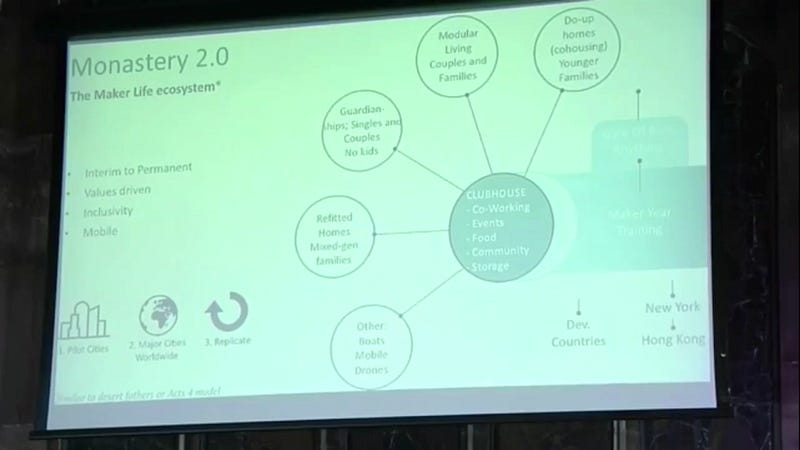Over the last year, I have been pursuing a master’s of data science at the University of the West of England. I was only able to do this because the Office for Students funded my studies and I am very grateful. It was a wonderful year.
My purpose in studying was to give myself the skillset I needed not only to go back to my data analysis work — things have changed a lot since 2015 when I left employment to work freelance from home — but also to be able to scrutinise my local authority.
Data analysis these days has evolved to require more emphasis on visualization and machine learning. I look at my ex-colleagues’ LinkedIns and their titles one by one have gone from analyst to data scientist, in the same roles. There are many more techniques available for analysing and making sense of data. There is also more data.
There has been an unshackling of data, as such, over the last two decades as governments embraced the idea of Open Data. In the UK, 2010 was the year of the official launch of Data.gov.uk, in the US, the Data.gov portal opened up in 2009. Various countries followed.
Open data is about reusable data and reusing government data (Huijboom and Van den Broek 2011). Note, however, that open data does not necessarily mean open government. While it may be convenient for government to conflate open data with open government, the two are not the same. Open data provides for a release of information (regardless of what is then done with the data) whereas open government suggests transparency, accountability and participation. The difference can be seen as with the art project of pianos scattered around various cities. The piano may be there but without the skills, you can’t make music.
Which brings me back to data science and my master’s. Data science is the intersection between computing, maths and a particular domain of knowledge. In my case, I used to work with higher education data and now I work with flight data and local authority data. Each of these domains not only has data peculiarities one needs to be aware of but they also have domain knowledge that is required.
For local authorities, the public need to know about budgets, powers of officers and decision makers, and legal requirements that provide for access to more information (FOI, legislation, methods of communication etc.). There are specific opportunities such as the inspection of accounts period, which allows residents to ask for information about spending over the previous financial year, and there are rules to follow when accessing information from committees.
Why did I need to do all this?
In the past few weeks, I’ve had it come up in conversation about 1) why I don’t send my work to the media, and 2) about how local activists feed information to the local media in the hopes of getting them to write something about what we see as relevant.
Back in 2019, when I first began to write more seriously about the goings on in Bristol, I did try to get my work published in the local media. I had spent months researching the links between Labour mayor Marvin Rees, his faith advisor and the charismatic church. No one would touch it. The Bristol Cable ignored three of my emails, Bristol247 (where my husband is editor) said it was too complicated and I didn’t even bother with the Post. Their editor was hosting the mayor’s Q&As, for example, before he was turned on by the Labour administration too.
I was also told that the mayor’s religion was his personal business and not relevant to the wider pubic. But note that the mayor brought people in from his church into positions of power in City Hall and its linked groups. They were making decisions about the city solely due to their religious links to the mayor. This was undoubtedly of public interest.
From Prophecy to Crumbling Legacy: Marvin Rees
As the talk around Marvin Rees's newly published memoir, Let's See What Happens, picks up, there’s an aspect of his story that seems to have slipped under the radar — a prophecy, deeply rooted in the Charismatic church and intertwined with his political journey.
My story about the faith advisor was good though and it was newsworthy. The mayor had a faith advisor in his office who was linked to evangelical churches in the US, as was he. She was being paid by unknown external funders and had access to City Hall. By any account this was a newsworthy story.
The mayor's faith adviser and his links to evangelical churches
Marvin Rees has made no secret of his strong Christian faith. But does his faith adviser, who works one day a week in City Hall, have too much influence? And should he be associating with powerful yet secretive Christian groups who believe that homosexuality is a sin?
So I followed all the protocols one follows in these situations; I emailed the council for comment, I emailed Bristol Pride because there was much anti-LGBT sentiment in the mayor’s church and their networks, and I waited. I heard nothing back. From that moment on, I had been blacklisted by the council and they refused to answer any of my questions. I’m still blacklisted even under a Green council leader.
I continued to publish stories that the local press wouldn’t touch such as Monastery 2.0 —
Bristol Housing or Monastery 2.0?
Bristol Mayor Marvin Rees has been convinced to provide 20 sites in the centre of Bristol for a project called Monastery 2.0, according to a speech by Conservative peer Lord Nat Wei.
and the mayor’s office colluding with Business West and YTL to cancel the arena project so YTL could get their planning permission and the millions in public funding that would mean.
One man, two plans and approval guaranteed
In February 2020, Cabinet approved L&G’s plans to start work at Temple Quarter for their mixed-use scheme. The following month, YTL were given planning permission to build their 17,080-capacity arena on their site in Filton.
Some of my stories were ‘generally’ newsworthy such as the use of public money for spying on Twitter, the £2.7m spent on the diesel fleet at the same time as banning diesel vehicles from the CAZ etc.
But these weren’t the only stories out there. I knew that if I wanted to get my stories written, I would have to do it myself. I needed to have the right understanding of what was going on. I needed to have enough knowledge in these matters to be able to report on what the council was doing; and not just Bristol City Council. There are 317 local authorities bound by the same regulations and same open data rules in England. There are different obligations on them according to the type of authority they are:
county councils
district councils
unitary authorities
metropolitan districts
London boroughs
But I am in Bristol. I pay council tax, I use public services, and my children, neighbours and community are affected by the behaviour of our local elected representatives, here. My priority has to be in scrutinising this local council, which sits metres away from my home in the city centre.
My master’s project consisted of creating a data dashboard (it’s more of a Power BI report) of open data spending. As mentioned above, the Coalition government legally obligated local authorities to release their data but they had no interest in helping make using it easier. Just as with the pianos around the city, if you can’t play, they’re just nice ornaments.
I decided it was time for me to start learning how to play.
The PowerBI dashboard I have created is available at the following link. It’s a work in progress because as my business intelligence & visualisation course taught me over the last year, the information you present has to answer the questions of the people using the data. Those people are the residents of Bristol. The questions come from you and me.
Click on the following link to access the PowerBI Dashboard.
I also created some ChatGPT bots as such which you can ask about the following categories:
spending over the last eight years: link.
statements of account over the last eight years: link.
public forum (over the past 12 months): link.
You can access these AI chatbots and ask them about their topics in a conversational style. This is a small step towards greater understanding of what our local authority is doing but more is needed.
I am also taking an undergraduate course on Fundamentals in Accounting with the OU, and court reporting and media law are also on my list of things to do.
The myth of armchair auditors
Back when the audit sector was deregulated, effectively, by Tories such as Eric Pickles, we were meant to believe that a hoard of armchair auditors would now keep an eye on local government finances. We would scrutinise the open data and hold our politicians to account for how they used our money. Councillors would also have the power to hold their administration to account.
As we have seen in real life, however, these politicians can spy on SEND parents, prying into their personal lives, in order to defend their parent carer forum, and there are no consequences at all. Councillors sit back like the timorous watchdogs they are and say nothing.
Open data without the tools to effectively use it, is a meaningless trinket.
I am dedicated towards learning how to use it properly.





Admire your tenacity so much Jo.
We need more determined principled journalist like you who are not afraid to expose the truth.
My story is disturbing post Grenfell, Liverpool City Council literally covered up a life threatening building and targetted my livelyhood for exposing this fact on X!
Best
Susie
Thanks for sharing this Johanna thanks and best wishes 🙏